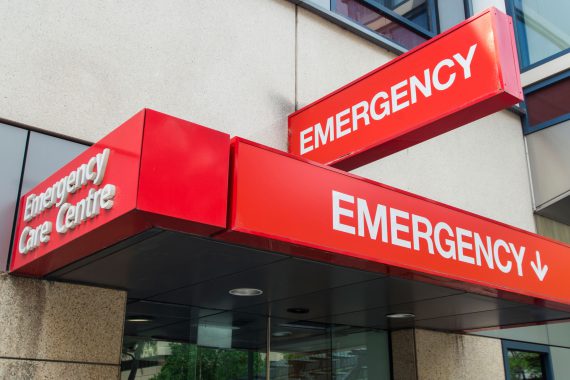Hospitals to cancel operations and appointments until end of January

NHS England has asked hospitals to push back all non-urgent elective care to the end of this month as winter pressures mount on the NHS.
The recommendation, which comes less than two weeks after NHS England bosses asked trusts to defer non-urgent care to mid-January, follows warnings of a spike in flu cases in England.
The decision, taken by the National Emergency Pressures Panel, will affect both planned operations and outpatient apppointments. The panel also recommended hospitals delay day case procedures, amid a range of measures to reduce pressure on A&E departments.
These recommendations include placing a senior consultant at the front door to A&E to triage patients and ensure GPs can reach consultants for telephone advice.
The panel’s chair Professor Sir Bruce Keogh said the decision comes as they ‘expect these pressures to continue’ and as ‘there are early signs of increased flu prevalence’.
Hospitals were also told to consider staffing additional inpatient beds and ensure twice-daily review of all patients to speed up discharge.
NHS bosses have also asked CCGs to temporarily suspend sanctions for mixed sex accommodation breaches ‘to ensure patient safety comes first’.
Professor Keogh said: ‘We expect these pressures to continue and there are early signs of increased flu prevalence.
‘The NHS needs to take further action to increase capacity and minimise disruptive last minute cancellations. That is why we are making these further recommendations today.’
Dr Peter Holden, former urgent care lead for the BMA’s GP committee, said the recommendations are ‘a joke’ and will ‘just produce more workload for us with more patients’, adding that he expects the winter pressures to get worse.
He told Pulse: ‘The reason I think it’s going to get worse is because I think we’re in for a bit of a rough winter, illness-wise. But I genuinely believe we’ve got a workforce that’s pretty exhausted.’
He added: ‘People are ringing in sick because they’re exhausted. You can’t keep flogging the skilled workforce you’ve got and expect them to deliver plus we’ve got a lot of sickness around – a hell of a lot of sickness around.’
NHS Providers director of policy and strategy Saffron Cordery said winter preparations have been ‘more extensive and meticulous than ever before’.
But she added: ‘Many are dealing with unprecedented demand, reflecting the recent rise in cases of flu and respiratory illness, the impact of norovirus and – in some places – primary care including GPs working at more than full stretch.
‘The response outlined in these recommendations is sensible and proportionate.’
However, speaking on Radio 4 this morning, NHS England director of acute care Professor Keith Willett denied there was a crisis.
He said: ‘A crisis is when you haven’t got in place mitigations in place and you haven’t got a plan to deal with it. We have gone into this winter in a way that we have never prepared before.’
NHS England said the extra measures will ‘ensure patients receive the best possible care over this challenging period’, with the spokesperson adding that ‘additional capacity is due to open in the next fortnight’.
Public Health England data has shown that the number of patients seeking out their GP with flu-like symptoms rose markedly over the holiday period, with out-of-hours services in Northern Ireland buckling under the pressure.
NHS England has already asked trusts to put GPs at the front door of A&Es to triage patients on arrival, despite a pilot area finding that the scheme ‘did not work’.
Meanwhile, the RCGP has asked patients to take three steps before visiting their GP in a bid to relieve pressure this winter.
How has the NHS prepared for winter?
While none of the winter plans detailed any extra funding for general practice, many requested that GP practices provide extended hours to reduce the pressure on A&E departments – including staying open on bank holidays.
The plans however did include placing up to three GPs in A&E streaming services to curb secondary care pressures this winter.
But trusts were struggling even early in the autumn, with four declaring black or red alerts in September and October and GPs have said the strain on A&E will put general practice under even more pressure this winter.
As a result Chancellor Philip Hammond handed hospital trusts £335m to deal with urgent winter pressures in the Autumn Budget statement, while general practice failed to get a mention.









